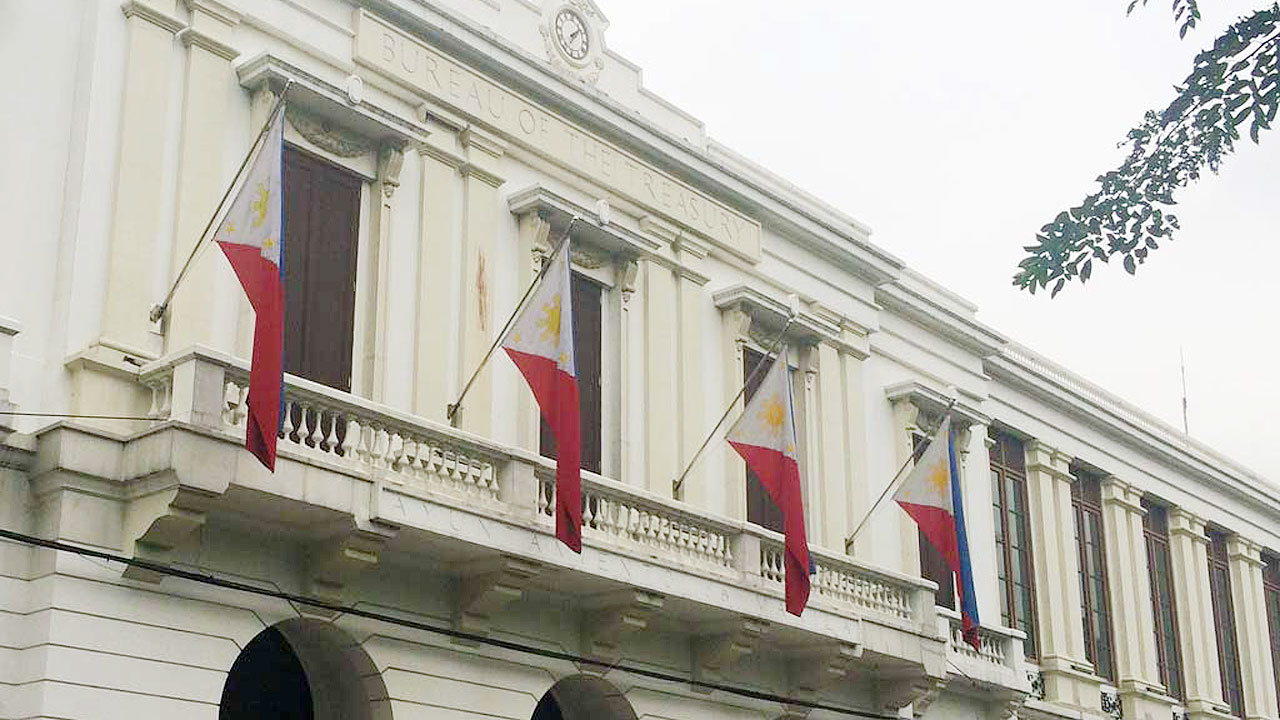Gov’t partially awards fresh 20-year T-bonds

THE GOVERNMENT partially awarded the fresh 20-year Treasury bonds (T-bonds) it offered on Tuesday as investors asked for high rates amid expectations of continued central bank tightening.
The Bureau of the Treasury (BTr) raised only P27.597 billion from its offer of new 20-year papers on Tuesday, less than the programmed P35 billion, even as total bids reached P70.361 billion or over twice as much as the amount on the auction block.
The bonds were awarded at a coupon rate of 8.125%, 31.5 basis points (bps) higher than the 7.81% quoted for the 20-year paper at the secondary market prior to the auction, based on PHP Bloomberg Valuation Service Reference Rates data provided by the BTr.
The government accepted offers with rates ranging from 7.73% to 8.249% for an average of 8.012%, also 20.2 bps above the 20-year bond’s secondary market yield.
“The Auction Committee partially awarded the new 20-year Treasury bonds at today’s auction, capping the coupon rate at 8.125%. The auction was more than twice oversubscribed as total submitted bids amounted to P70.4 billion,” the BTr said in a press release on Tuesday.
A trader said it was a “good auction” in terms of the awarded rate as the coupon quoted for the new 20-year paper was lower than the average rate of the reissued 25-year bond sold by the Treasury last week.
The government fully awarded the reissued 25-year Treasury bonds (T-bonds) it offered last week as investors asked for higher yields ahead of the Bangko Sentral ng Pilipinas’ (BSP) rate hike.
The BTr raised P35 billion as planned from its offer of 25-year papers as total bids reached P80.953 billion. The bonds, which have a remaining life of 11 years and 11 months, were awarded at an average rate of 8.168%, 91.2 bps lower than the 9.08% average quoted for the papers when they were first offered on Nov. 3, 2009 and 108.2 bps below the 9.25% coupon for the issue.
“However, given another partial award, the BTr has awarded less compared to its schedule,” the trader added in a text message.
UnionBank of the Philippines, Inc. Chief Economist Ruben Carlo O. Asuncion said in a Viber message that the partial award was due to investors asking for higher yields.
“Nevertheless, the average bid is well within what our traders expected but biased to the lower end of about 8%. Of course, the Treasury has been picking its spots and careful in responding to the market, especially under the current environment,” Mr. Asuncion added.
Rizal Commercial Banking Corp. Chief Economist Michael L. Ricafort said in a text message that markets are still anticipating a smaller US Federal Reserve rate hike and a matching BSP increase in December.
“Inflation is still expected to reach its peak towards 8% in the fourth quarter due to the effects of [weather disturbances] and increased demand during the holiday season, but to ease after the holidays,” he added.
The BSP last week delivered a jumbo rate hike to rein in rising prices as it sees inflation continuing to overshoot its target until next year.
The Monetary Board increased the overnight reverse repurchase or policy rate by 75 bps to 5%, the highest in nearly 14 years. The rates on the central bank’s overnight deposit and lending facilities were also increased to 4.5% and 5.5%, respectively.
The BSP has now hiked rates by 300 bps since May as it seeks to temper inflation.
Headline inflation in October accelerated to 7.7%. For the first 10 months, inflation averaged 5.4%, higher than the central bank’s 2-4% target but below its 5.8% forecast for the year.
BSP Governor Felipe M. Medalla on Tuesday ruled out further outsized or off-cycle increases, but said they will need to keep on raising borrowing costs as the US Federal Reserve’s own tightening cycle continues.
The Monetary Board’s next review will be held on Dec. 15.
Meanwhile, the Fed has hiked rates by 375 bps since March and is expected to begin considering smaller increases as early as its Dec. 13-14 meeting.
The BTr wants to raise P215 billion from the domestic market this month, or P75 billion through Treasury bills and P140 billion from T-bonds.
The government borrows from local and external sources to help plug a budget deficit capped at 7.6% of gross domestic product this year. — L.M.J.C. Jocson



